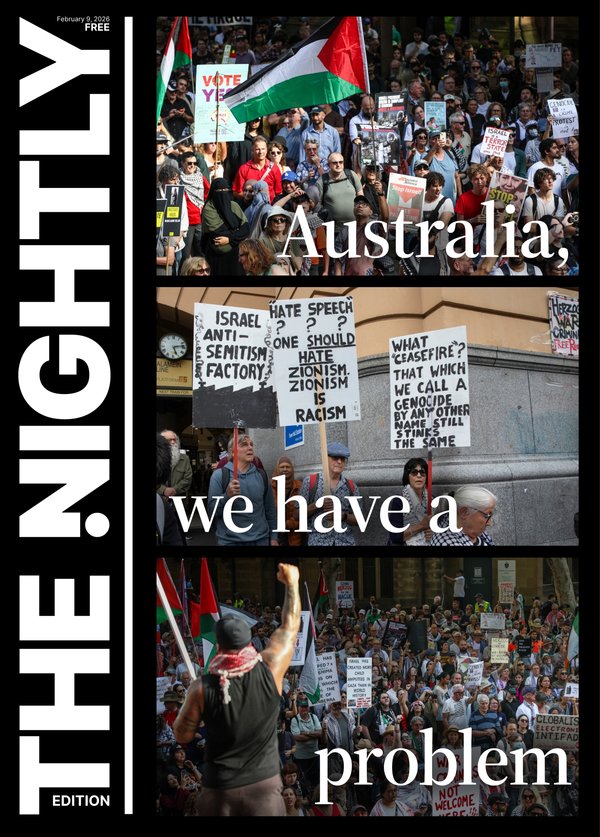DVIR ABRAMOVICH : Charlie Kirk’s murder is a great American tragedy, and a lesson for every democracy
DVIR ABRAMOVICH : The assassination of Charlie Kirk, a conservative firebrand speaking at a campus forum, is an American tragedy. But if we’re wise, we’ll let it teach us.
On a university lawn in Utah, a sniper’s bullet cut through a student event built for debate. A young crowd came to argue. They left in shock. What does a killing like that say to a country 12 time zones away? More than we might want to hear.
The assassination of Charlie Kirk, a conservative firebrand speaking at a campus forum, is an American tragedy. It is also a message to every democracy: if you let contempt harden, violence looks like an option. Australia didn’t cause this. But if we’re wise, we’ll let it teach us.
This is not a call to import another country’s panic. It’s a plea to notice the direction of travel. We’ve already felt the temperature rise, in the way rallies in our CBD turn into face-offs, in how language curdles from argument into taunts, in the way people come to see opponents as enemies. The American killing is extreme. The attitudes that permit it are not.
Sign up to The Nightly's newsletters.
Get the first look at the digital newspaper, curated daily stories and breaking headlines delivered to your inbox.
By continuing you agree to our Terms and Privacy Policy.We know how this works. You begin by sneering at people you dislike. You call them names that strip away their humanity. You describe fellow citizens not as rivals, but as threats. Over time, that contempt becomes normal. When contempt is normal, violence is thinkable.
That’s why language matters. Protest is a right. Scaring people isn’t. That’s the line. And it has to be drawn again and again by leaders, by media, by ordinary people.
Some American researchers now talk about political violence the way doctors talk about disease.
Treat it like contagion: stop it early, change the environment so it can’t spread.
That means leaders repeating the same sentence every time there’s a threat, every time a slur is hurled, every time fists fly at a rally: no violence, no excuses. Boring, predictable, unwavering. That drumbeat is how you inoculate a culture.
What would that look like here? It would mean politicians refusing to wink at extremists who march under Australian flags but chant for exclusion.
It would mean schools teaching kids that debate is sharp but never cruel, passionate but never degrading. It would mean that we make small choices every day: choosing not to share the video that turns strangers into monsters; choosing proportion over panic; choosing curiosity over contempt.
Because political violence doesn’t come out of nowhere. It ripens in the soil we prepare, in the habits we tolerate, in the jokes we let pass, in the silences where we should speak up.
The lesson for Australia is not that we face the same level of violence as America. The lesson is that contempt, once it settles in, reshapes the way a country behaves. We still have time to steer a different course.
That begins with language. The words leaders choose ripple outward. Every exaggeration, every casual smear, every time an opponent is described as an enemy, it licenses others to escalate. If we want to prevent violence here, our leaders have to model proportion and restraint. They don’t have to agree with one another, but they do have to make disagreement feel safe.
The second lesson is cultural. Violence becomes thinkable when ordinary people lose the habit of everyday respect. When opponents are no longer neighbours but caricatures, when we shrug at bullying in schools or sneering online, the ground shifts.
Australia’s real defence is not just police at rallies but the expectations we set in homes, classrooms, and communities about how we treat those we dislike.
The third lesson is prevention. America shows what happens when you wait until violence arrives and then scramble for answers. By then, it is too late.
The healthier choice is to act upstream: teach civic disagreement early, draw a firm line against intimidation in public life, and repeat one message across the political spectrum until it becomes boringly familiar: we argue, we don’t attack.
None of these steps require new institutions or grand statements. They require a decision, made daily, to keep politics in its place. Democracy does not survive on laws alone; it survives on habits of trust, courtesy, and proportion. If we can protect those, we will not need to lower our flags in mourning for one of our own.
Dr Dvir Abramovich is Chair of the Anti-Defamation Commission and the author of eight books
